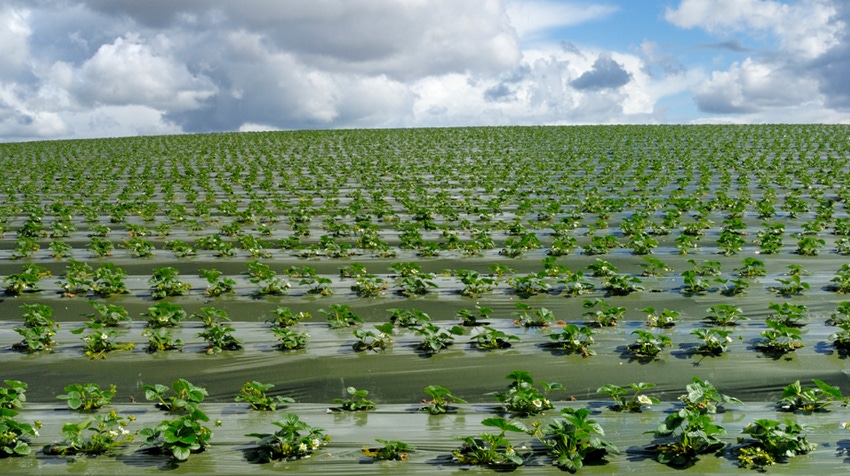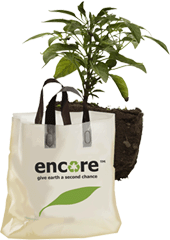Bag bans inspire Command Packaging to innovate
Plastic grocery bags are certainly a hot button issue. When there is a material being banned in certain parts of the world, it's obviously going to stir some emotions. But it can also do something else; sometimes it forces companies to evolve and become creative in ways they might not have anticipated.
September 17, 2013

Plastic grocery bags are certainly a hot button issue. When there is a material being banned in certain parts of the world, it's obviously going to stir some emotions. But it can also do something else; sometimes it forces companies to evolve and become creative in ways they might not have anticipated.
California-based Command Packaging CEO Peter Grande told PlasticsToday that while bag bans caused the plastic bag manufacturer to lose some business to paper, they also saw the bigger picture and an opportunity to offer a new solution to a "very controversial and complex topic."
"Bag bans have allowed us to look at a problem through a different set of lenses and create a solution that will really help address the problem," he said. "We knew if we could create a better solution, it would have a positive impact on our company in the long run."
After studying the issues, Grande said that it became obvious that plastic bags needed to be manufactured from recycled plastics. Since recycling of plastic film and bags in the U.S. is "inadequate," he said that became the first challenge the company needed to solve.
The company learned in its analysis that a sustainable business model required recycling plastic with a purpose and not just recycle for the sake of recycling.
Grande said that one of Europe's solutions was to create a closed-loop system using agricultural plastic from fruit and vegetable growing regions and re-purposing the recycled plastic into the raw material used to produce grocery bags. The model made so much sense to Grande that Command Packaging chose to invest its own money in the European technology so the company could recycle agricultural plastic and implement the closed-loop model in California. Command Packaging is the first U.S. company to adopt this European recycling model, Grande said.
"The immediate purpose of recycling agricultural plastic is to make the grocery sack of the future that is an affordable reusable bag that can be manufactured in the U.S. from locally recycled plastic and is recyclable at the end of life," he said. "The result of European regulation was the creation of a sustainable business model which meant European bag producers were able to survive if they evolved away from single-use virgin plastic bags."
 Command Packaging recently announced the opening of Encore Recycling. The new 200,000-sq-ft agricultural plastic recycling facility in Salinas, CA is scheduled to begin operations in October 2013.
Command Packaging recently announced the opening of Encore Recycling. The new 200,000-sq-ft agricultural plastic recycling facility in Salinas, CA is scheduled to begin operations in October 2013.
Encore Recycling will immediately add 40 manufacturing jobs in an area of California the company says has been hard hit by the economic downturn. In 2014, the company will employ more than 100 full-time workers and plans to grow to a staff of nearly 500 full-time employees.
Lots of California produce is grown in Salinas. One major California crop is strawberries, which require a lot of plastic in the growing process. Grande said that Salinas is central to much of this discarded plastic and that they believe this new recycling facility will provide a sustainable business model to the on-going environmental problem, while at the same time provide an economic benefit for both the farmer, the grocer, the consumer, and its employees.
Encore Recycling will partner with growers to collect, wash, and recycle the more than 100 million lb of agricultural plastic that is currently being disposed of in California landfills every year. Since Command is in the bag business, its primary products produced with the recycled material will continue to be bags. The facility will turn the plastic into reusable bags called smarterbagsfor the California grocery market, which can be reused more than 100 times.
"The reality is that plastic is a necessary part of our everyday lives," Grande said. "Since plastic is here to stay we have to stop talking about banning plastic and start talking about how to take advantage of 'smarter plastic.'"
Products that are made from "smarter plastic" are products that employ the three "R's": reduce, reuse and recycle. So what Command calls smarterbags are plastic grocery sacks that are reusable, made from recycled agricultural plastic and can be recycled at the end of life.
"The new products we're creating and our new Encore-Recycling center in Salinas will ultimately make us a better company," he said. "If bag bans served as the catalyst for this improvement, you could say, in the big picture, the impact of bag bans has been a positive."
About the Author(s)
You May Also Like


